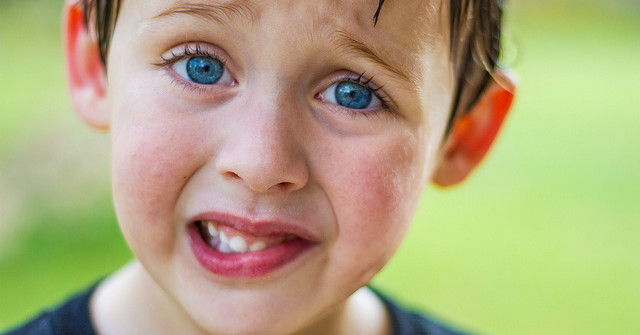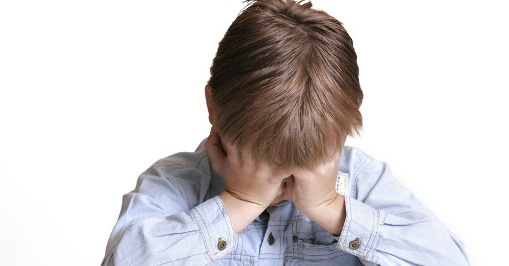
If your child has an anxiety disorder, you would know right? There would be obvious visible signs such as being frightened of new situations and new people all the time, or they might be more clingy than other children their age.
Unfortunately, the signs of an anxiety disorder are not always so clear. Not all children are vocal about their fears or visibly show that they are fearful, and most parents are not aware that there are signs that could point to above normal anxiety in their child. Many parents actually will even sign up for child therapy because of other problems they believe exist only to discover the underlying issue was an anxiety disorder all along.
Signs of an anxiety disorder in children that often go unnoticed include:

Physical Ailments
Your child cannot poop and after they have been constipated for weeks. You take them to the doctor only to be disappointed when no clear medical issue is present.
Your child might also be suffereing from regular gastrointestinal issues and might regularly complain of the need to throw up. Other common physical attributions of anxiety include:
- Headaches
- Dizziness
- Sleep Disturbances
- Difficulty Swallowing
- Dry Mouth
- Constant Coughing
- Difficulty Breathing
- Chest Pain
- Heart Palpitations
- Nausea
- Vomiting
- Diarrhea
- Constipation
- Cramping
New Dislike of School
Your child has recently changed from loving school to finding as many excuses as they can to avoid going each day. After speaking with their teachers, you discover that your child does have friends, is not being bullied, and that they do seem to enjoy school. However, you notice that when the weekend hits, your child becomes more at ease and stops faking illnesses.
Unsual Anger
It is not uncommon for a child's emotions to get the better of them, and they start to act out. Sometimes, though, a tantrum is not really a tantrum, but the child's anxieties bubbling over the surface. Notice at what times your child gets angry and what appears to have caused the outburst.
Avoids Activities
Like with school, if your child begins to feign sickness or come up with other excuses to miss once loved activities, anxiety could be the main cause. Look deeper into the avoidance to discover if they simply no longer enjoy the activity or if anxiety might be at the root. If anxiety seems to be the culprit, the number one unheathiest reaction to deal with the situation as a parent is to let them continue to avoid these situations. It only lets the fear build.
Engages in Rituals
A routine can be comforting for anyone including children. However, many times parents mistake behaviors in their children that may seem routine but are actually ritualistic in nature. These include things such as being kissed an exact number of times each night before they can go to bed or placing their toys in a precise order.
Focuses on Body Centric Behaviors
Sometimes when a child's daily routine goes differently than they had anticipated, it can cause them to become anxious and start focusing on a part of their body to deal with that anxiety. This could manifest as hair pulling, lip or cheek biting, or skin picking. All of these can cause noticeable scarring, lesions, or hair loss.
Constant Worrying
Children can get anxious about their life, but when it seems like the worrying never ends, an anxiety disorder could be to blame. A child that is constantly fearful that a bad situation is on the horizon or that believes they are always sick and need reassurance from a doctor or parents could very well have more than the normal amount of childhood anxieties.
If you are a parent who believes their child has anxiety, there is good news. Anxiety is treatable, and the earlier they can get help the better the prognosis will be. A mental health professional or child therapist can offer guidance and suggestions to help your child overcome anxiety related disorders.
Resources:
PsychCentral – 5 Missed Signs of Child Anxiety
AnxietyBC – Childhood Anxiety & Related Disorders